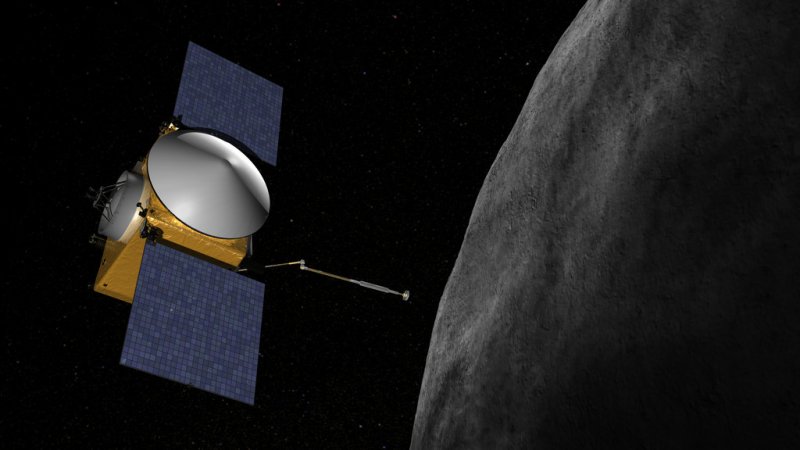Artist concept of OSIRIS-REx. Credit: NASA/Goddard/University of Arizona
GREENBELT, Md., April 18 (UPI) -- NASA says a new program will enlist the help of amateur astronomers to discover near-Earth objects with orbits that occasionally bring them close to Earth.
The citizen science project called "Target Asteroids!" starting Wednesday will support NASA's OSIRIS-REx mission scheduled for launch in 2016 that will study material from an asteroid.
Amateur astronomers will help better classify the population of NEOs, their position, motion, rotation and changes in the intensity of light they emit, NASA release said.
Professional astronomers will use this information to refine theoretical models of asteroids and improve their understanding of asteroids similar to the one OSIRIS-Rex will encounter in 2019, designated 1999 RQ36.
Target Asteroids! data will be useful for comparisons with actual mission data, NASA said.
"Although few amateur astronomers have the capability to observe 1999 RQ36 itself, they do have the capability to observe other targets," Jason Dworkin, OSIRIS-REx project scientist at NASA's Goddard Space Flight Center in Greenbelt, Md., said.
A better understanding of NEOs is a critically important precursor in the selection and targeting of future asteroid missions, NASA scientists said.
"For well over 10 years, amateurs have been important contributors in the refinement of orbits for newly discovered near-Earth objects," Edward Beshore, deputy principal investigator for the OSIRIS-REx mission at the University of Arizona in Tucson, said.















